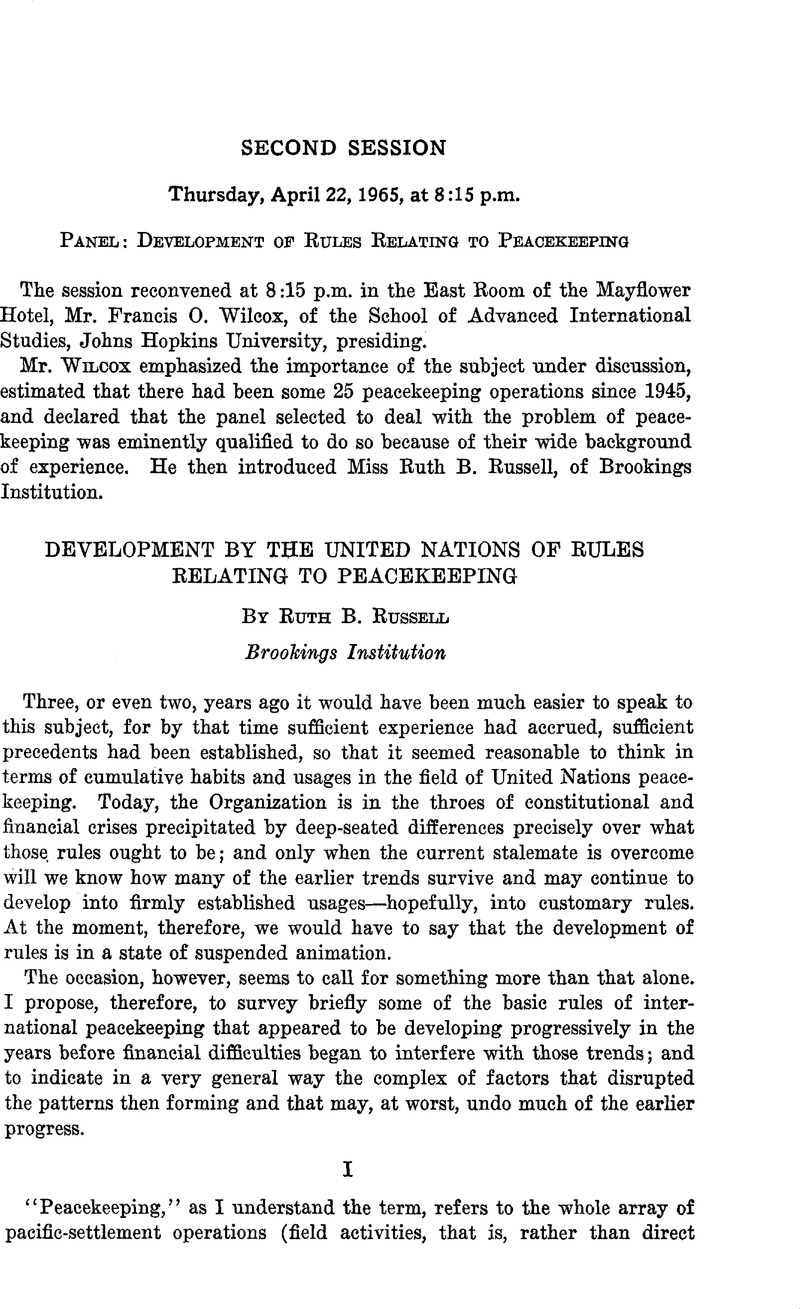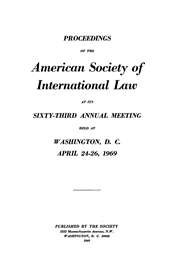No CrossRef data available.
Article contents
Development by the United Nations of Rules Relating to Peacekeeping
Published online by Cambridge University Press: 27 February 2017
Abstract

- Type
- Second Session
- Information
- Copyright
- Copyright © American Society of International Law 1965
References
1 Legally, the Organization will have the right to select its agents independently, as with the Secretary General's decisions on the nationality of troop contingents in a United Nations Force; but as a practical matter, he will have to select ones that are acceptable to the host country, if the latter's consent is to be forthcoming. But he will not have to use any proposed by that government if they do not satisfy his own standards.
2 See especially, Dag Hammarskjold, Summary Study of the Experience derived from the Establishment and Operation of the Force: Eeport of the Secretary General, in General Assembly, 13th Sess., Official Eeeords, Annexes, Agenda Item 65 (A/3943), 1958; and U Thant, Aide Memoire concerning Some Questions relating to the Functions and Operations of the U.N. Peace-Keeping Force in Cyprus (S/5653), April 11, 1964.
3 See the Hammarskjold Report, cited above, for further discussion of rules concerning the composition of a Force and the practical requirements of a Status of Forces Agreement with the host country.
4 From Containment to Cease-Fire and Peaceful Change, The Quest for Peace (edited by Andrew Cordier and Wilder Foote, Columbia University Press).
5 France has more recently and formally taken a position in the Committee of 33 that seems even more rigid than the Soviet one in rejecting any Assembly “action” on peace and security matters. See, for example, Ambassador Seydoux's statement in U.N. Doc. A/AC.121/P.V.7, May 17, 1965.




